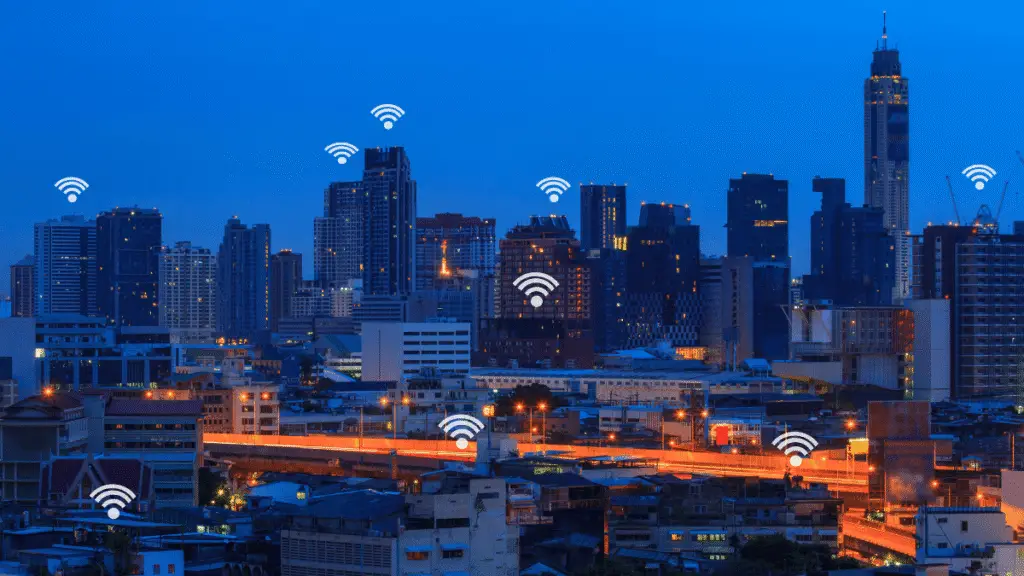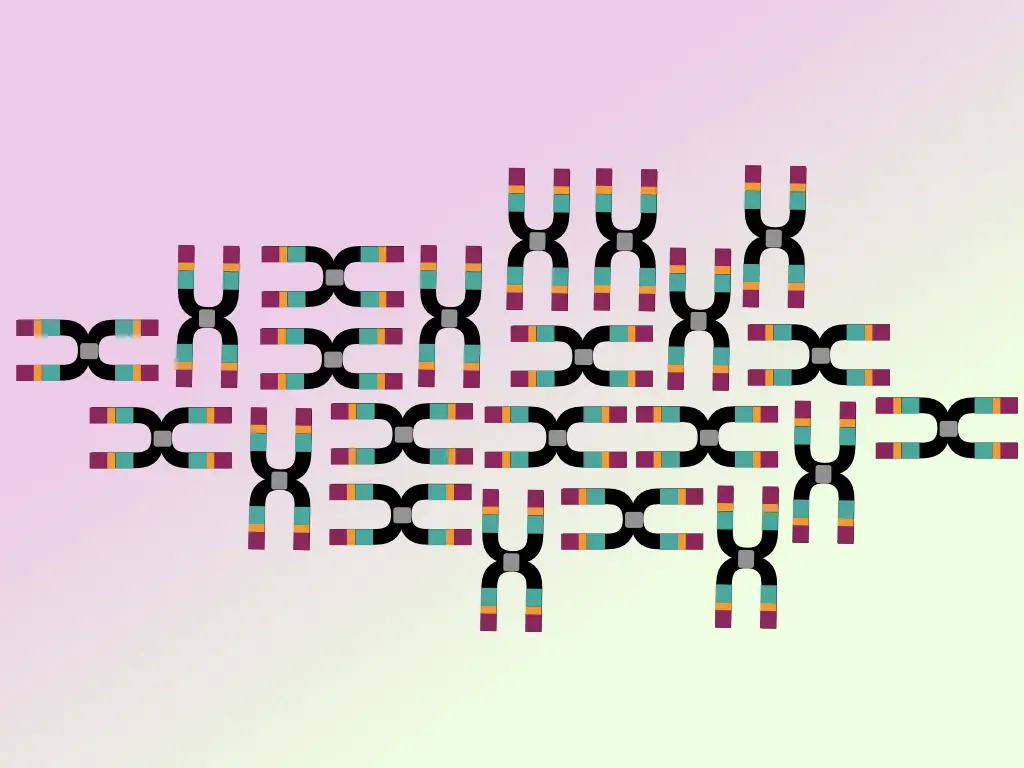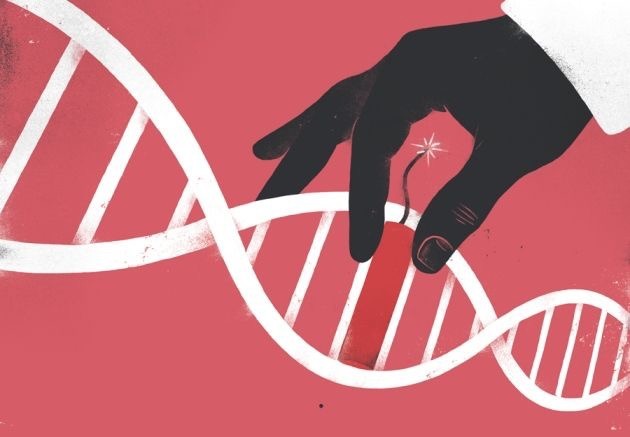Wi-Fi: a modern-day necessity. Or let’s be honest — a full-blown lifestyle.
From working to watching reels, ordering food to tracking your sleep, we’re constantly surrounded by wireless networks. It’s not just a convenience anymore – it’s a corporate essential, a household default, and for most of us, a non-negotiable.
But have you ever stopped to wonder…. What’s it doing to your body?
More specifically, to your DNA?
We spend nearly 24 hours a day in Wi-Fi-enabled environments – homes, offices, cafes, even airports. And while we stay connected, something inside us might be quietly taking a hit.
So let’s talk about the one thing nobody really talks about: Is your Wi-Fi connection weakening your cellular connection? It is one of our daily tech habits that might be hurting our DNA.
Key Topics:
How does Wi-Fi affect our DNA?
Wifi is a necessity — sure.
But turning it into a constant, all-day-long exposure? That’s where things might start to go wrong.
And listen – you don’t have to take my word for it.
Because the scientific reports say the same. Studies have shown that long-term exposure to electromagnetic radiation, like the kind emitted from a Wi-Fi router, may have real effects on our DNA, our cells, and our overall health.
So here’s the proof – laid out for you, signal by signal.
A study published in the journal Environmental Research (volume 164, July 2018 ) by Dr. Martin L. Pall states it loud and clear –
“Wifi is an important threat to human health.”
The research paper brings together data on how electromagnetic fields from WiFi and other wireless technologies can impact our health at a cellular and genetic level.
Repeated Wi-Fi studies show that Wi-Fi causes oxidative stress, sperm/testicular damage, neuropsychiatric effects, including EEG changes, apoptosis, cellular DNA damage, endocrine changes, and calcium overload.
And here’s where it gets more alarming – Dr. Pall didn’t just stop at the theory. He compiled over 20 peer–reviewed studies that revealed how long-term Wi-Fi exposure affects our biology at a fundamental level.
From damaging DNA and triggering oxidative stress to interfering with brain activity and hormone balance, the effects are really concerning.
What makes it worse is that the non-thermal radiation from WiFi is not strong enough to heat our tissues like a microwave, but it still manages to disrupt cellular function ….. So these signals affect our body through voltage-gated calcium channels (VGCCs).
Voltage-gated calcium channels are small protein doorways in our cells that open when exposed to these electromagnetic frequencies. Once opened, they allow excess calcium to flood in, which then causes a cascade of harmful effects like free radical production, inflammation, and even gene expression change.
Research on 2.45 GHz Wi-Fi signals (the same ones we use at home) shows they can mess with both human and animal health. Scientists found that this (radiofrequency) electromagnetic radiation can lower sperm count, affect motility, and even harm DNA integrity. And it doesn’t stop there.
In males, long-term Wi-Fi exposure has been linked to degenerative damage in reproductive organs, reduced testosterone levels, increased cell death, and overall oxidative stress.
For females, the effects are equally alarming — Wi-Fi exposure has been shown to disrupt hormone production like estrogen and progesterone, leading to reduced fertility. Some studies even connect this to chromosomal mutations, which may be one of the causes of spontaneous abortions.
And it’s not just about reproduction. Animal studies show that Wi-Fi radiation exposure may trigger anxiety-like behavior, cause oxidative stress in the brain, and increase the activity of brain enzymes linked to stress and mood.
Excessive WiFi exposure is known to be associated with disrupted learning and memory, sleep deprivation, and fatigue related to reduced melatonin secretion and increased norepinephrine secretion at night.
There is also this long debate about whether Wi-Fi causes cancer or not. Does it?
Currently, there’s no definite answer to this question. That’s because there’s no solid evidence suggesting that Wi-Fi, or EMFs in general, directly causes cancer.
In 2011, the World Health Organization’s International Agency for Research on Cancer (IARC) stated that EMFs are “possibly carcinogenic to humans.” The label was established by 30 scientists who evaluated studies on EMFs and cancer.
However, Studies involving EMFs and cancer are conflicting. For example, according to a 2017 research review, EMFs from wireless devices increase the risk of glioma, a type of brain tumor. But a 2018 study states that there’s no clear association between EMFs and brain tumors.
Now don’t get me wrong – I’m not saying you should throw away your wifi router and move into the woods, because let’s be honest, in today’s world, that’s neither practical nor realistic.
But at the same time spending 24 hours a day completely surrounded by wireless radiation and doing nothing to care for your body. That’s kind of wrong, don’t you think?
You don’t have to cut off the internet – just create a little balance.
What to do?
Spend a few hours each day disconnected: go outside, breathe in some fresh air, let your body reset in nature’s frequency.
And here’s a simple but powerful step: switch off your wifi at night. While you sleep, give your body the chance to truly rest, free from the constant stream of electromagnetic noise. Your body repairs itself while you’re asleep, so give it the cleanest environment to do that.
In addition, during sleep, our cells also fast-track the DNA repair activities, so our entire day’s DNA can be repaired as well. So Wi-Fi disabled rest is a must!
Related articles:
- Is Migraine Genetic

- 7 Rare Case Scenarios of Taste and The Genetics Behind Them

- 5 Traits You Won’t Believe Are Genetic

- How Malnutrition Can Affect Our Genetic Health

- How Fasting Can Benefit Your Genetics

Wrapping up:
Wi-Fi makes life easy, that’s correct–but at the cost of our well-being. We know the science now that long-term exposure can silently disrupt our DNA, our brain, and our body’s delicate balance.
Everything is good in a small amount. But the world is now entirely captured by wireless networks. That constant exposure isn’t suitable.
Small choices can make big differences. For instance, reducing screen time, taking breaks, and most importantly, switching off your router at night.
References
- WHO (2011). IARC classified radiofrequency electromagnetic fields as possibly carcinogenic to humans.
- Carlberg, M., & Hardell, L. (2017). Evaluation of Mobile Phone and Cordless Phone Use and Glioma Risk Using the Bradford Hill Viewpoints from 1965 on Association or Causation. BioMed Research International, 2017, 1–17. https://doi.org/10.1155/2017/9218486.
- Vila, J. et al., (2018). Occupational exposure to high-frequency electromagnetic fields and brain tumor risk in the INTEROCC study: An individualized assessment approach. Environment International, 119, 353–365. https://doi.org/10.1016/j.envint.2018.06.038
- Pall, M. L. (2018). Wi-Fi is an important threat to human health. Environmental Research, 164(164), 405–416. https://doi.org/10.1016/j.envres.2018.01.035.


